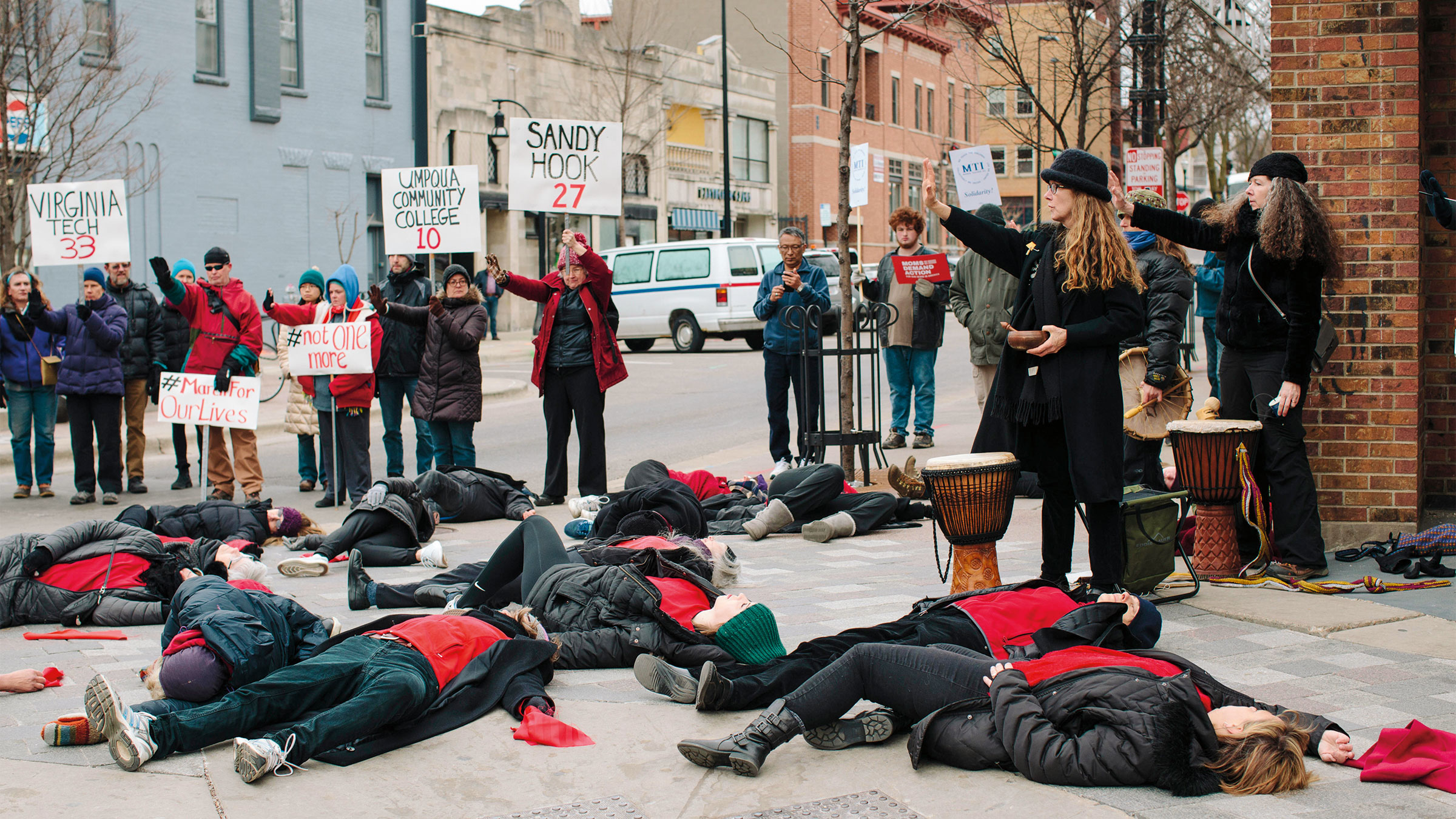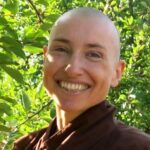Loss is part of democracy, just as grief is part of life. The bitter truth is that in democratic societies we take it in turns to lose and win. But boy, does it hurt when our political hopes are dashed. How can we sit in peace as cherished values and rights are threatened by a swing in the polls?
When it comes to politics, grief can feel magnified: it’s both personal and collective. Elections don’t affect everyone equally: some win more, some lose more. There are those of us whose physical safety, livelihood, and freedoms can be endangered by a certain result. So, the grief we’re feeling may be a pain that’s not ours alone, but is there in the collective consciousness, shared by millions. It may also be the pain and loss of our ancestors in us.
“Voting is an act of presence, an act of love and showing up.”
As meditation practitioners, our first task is to acknowledge and feel all the feels and allow our grief to be what it is, right here in our body. We’re called to soften the fight and open up some compassion around our loss. There’s “the story” we have about our grief, which plays out in the news, and there’s how that story viscerally feels in our body. Our challenge isn’t to numb or deny the pain, or brush it aside, but to take it on its own terms and tend to it with curiosity and gentleness.
We can be with our grief in such a way that it doesn’t pull us under. To be in the present moment means, for now, to drop the story we have about why the macro situation may be so bad, to ground ourselves in our body and breathing, and become aware of the felt reality of all the physical and emotional discomfort this moment contains. (We can return to the story as part of our deeper enquiry later.) Perhaps our political grief is showing up as weight across our shoulders, constriction on our chest, ill-ease in our gut, or rage in our hands. Mindful breathing, movement, walking meditation, and relaxation sessions offer us a chance to identify and soothe the feeling of grief in different parts of our body, giving it space and compassionate attention, so we can get some relief, and even learn from it.
It’s important to regroup with friends and loved ones after bad news, and find ways to create moments to lift up our energy and feel less alone. We may even consider taking a fast from news or social media. There may be nothing more we can do about the external result. But there’s a lot we can do to restore our inner sovereignty over our feelings so we can have clarity about how we’d like to act and live in response to that result. This is our spiritual power to reclaim our true freedom in the face of acute suffering.
As well as offering an embodied practice to tend to our grief, Buddhism also offers powerful insights that can help liberate us from fear and sorrow and give us hope.
The teachings on impermanence, signlessness, and Buddhist theories of change, action, and agency are all powerful concentrations that can free us from the idea that “all is lost” when a political situation isn’t what we’d like it to be.
First, impermanence. This is a liberating truth to hold in our sitting and walking meditation practice: no political regime, or war, or economic system will last forever, however bleak things look today. Even if our preferred candidates are elected, they won’t last forever either. The truth of impermanence contains an ever-unfolding opportunity. As the great Buddhist master Nagarjuna realized: “Thanks to impermanence, everything is possible.” This realization helps us activate an energy of patience and endurance.
Second, there’s signlessness. We’re invited to challenge the idea that what we cherish always needs to take a certain form or appearance (“sign”). We may think that progress needs to look a certain way, but perhaps the way forward is through the dark. We may think an enlightened, compassionate, and just society must check certain boxes. But perhaps there’s still suffering we need to understand deeply before that collective awakening can fully ripen. There can be hollow victories that exclude too many people, as well as powerful losses that can lead to wider, more inclusive movements. Perhaps what we love and cherish is still there, still growing and ripening in its own time. Are we sure that all is lost?
As the wonderful writer Rebecca Solnit has said, “We shouldn’t assume that anything less than victory is failure.” Often the most powerful results of political action are the unintended consequences. “Direct action seldom works directly,” Solnit notes. And sometimes, she says, “What is best about political activist movements is often called forth by what is worst.”
This leads us to the third concentration: applying Buddhist theories of action, change, and agency. In Buddhism, we understand action (or “karma”) as the energy of body, speech, and mind. No election of this or that political party or regime can take from us the action and agency we have as individuals and communities to protect, save, include, nurture, and grow good seeds in the world. There are those who say that grief is love with no place to go. Perhaps there’s love in your political grief, looking for a place. Our challenge is to continue to find a channel for our love and aspiration to build a more just and beautiful future. Our love may have its field of action in our spiritual communities, in our livelihoods, in our continued political engagement.
Voting is an act of presence, an act of love and showing up. When my inner cynic wonders “Does my vote even count?” I remember the insight of Buddhist masters who affirm that “action in one place is action everywhere.” Every starfish saved is a starfish saved. Casting a vote is to enact a ritual that belongs not only to us as an individual, but to our stream of ancestors and descendants. So much has gone into giving us that vote, and the action of voting is to keep that transmission alive. As the poet Archibald MacLeish once said: “Democracy is never a thing done. It’s always something that a nation must be doing.” Voting is nothing less than an act of love and insight, an investment, and a prayer for democracy to continue long into the future—and that energy radiates into the world, no matter the result.

